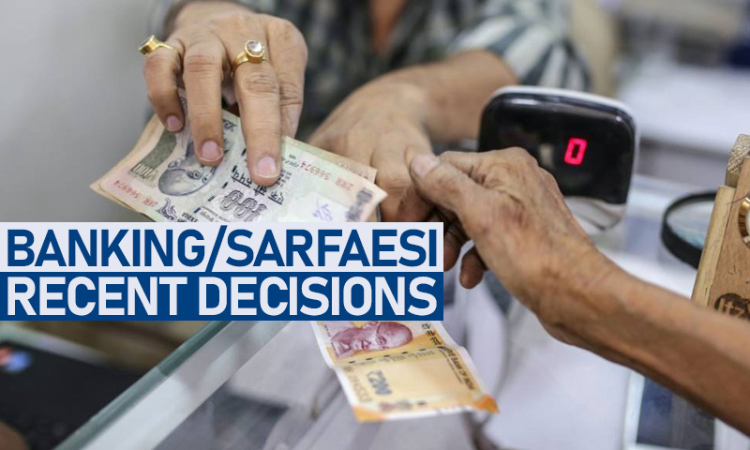SARFAESI, Debt Recovery & Banking Laws : Recent Important Decisions
Pragati Aggarwal
12 July 2020 8:13 PM IST

Next Story
12 July 2020 8:13 PM IST
1. Telangana State Southern Power Distribution Co. Ltd vs M/S Srigdhaa Beverages(Delivered by Supreme Court on 01.06.2020) Brief Facts Respondent – auction purchaser of the property of M/s. SB Beverages Private Limited failed to pay its dues, resulting in the auction by Syndicate Bank (Secured Creditor) under SARFAESI Act Whether the liability...
